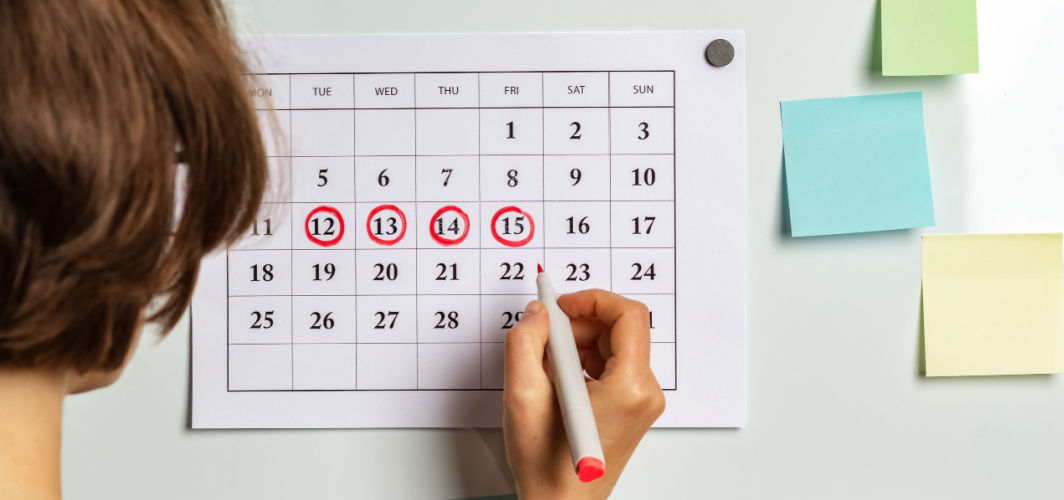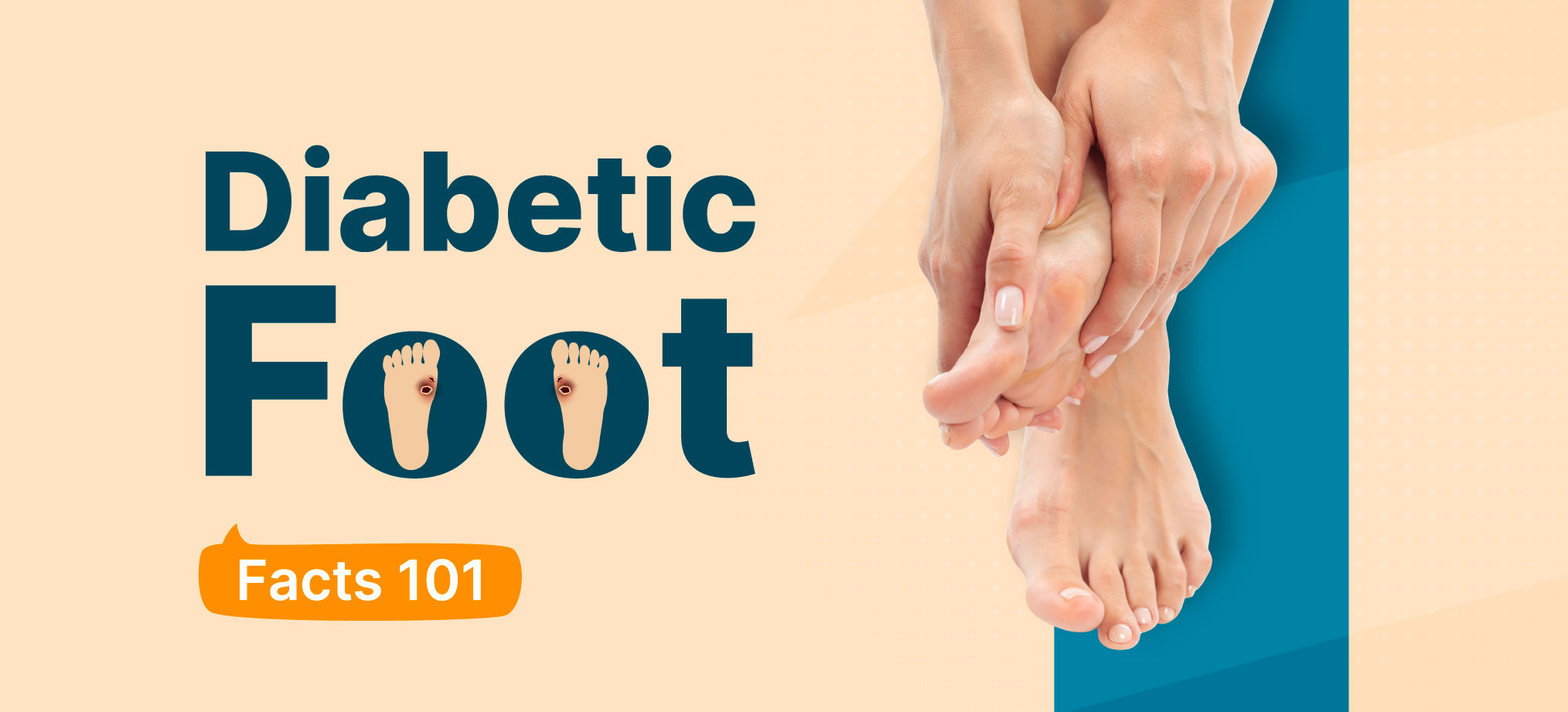Diabetes Management
Can Diabetes Affect Your Recovery?
2 min read
By Apollo 24|7, Published on - 13 September 2023, Updated on - 14 September 2023
Share this article
0
0 like

Diabetes, a chronic condition characterized by elevated blood sugar levels, can exert a significant impact on one's ability to recover from illnesses, injuries, or surgical procedures. In this blog, we'll delve into how diabetes alters the body's natural healing mechanisms, potentially causing delays in recovery, increasing infection risks, and posing challenges during pain management.
-
Slower Healing
One of the most notable ways diabetes can affect recovery is by slowing down the healing process. High blood sugar levels can impair blood circulation and damage small blood vessels, which are essential for carrying oxygen and nutrients to healing tissues. As a result, wounds, surgical incisions, or injuries may take longer to heal, increasing the risk of infections and complications.
-
Increased Risk of Infections
A weak immune system due to diabetes can increase the risk of infections. When you're trying to recover, your body's ability to fight off bacteria and viruses is crucial. High blood sugar levels create an ideal environment for harmful pathogens to thrive, making infections a more significant concern during recovery.
-
Post-Surgery Complications
For individuals with diabetes undergoing surgery, the risks are higher. Poorly managed blood sugar levels can lead to complications such as delayed wound healing, surgical site infections, and even cardiovascular issues during the operation. Surgeons often require tight glycemic control before, during, and after surgery to minimize these risks.
-
Delayed Pain Management
Diabetes can also complicate pain management during recovery. Neuropathy, a common diabetic complication, can affect the nervous system's ability to transmit pain signals effectively. This may lead to delayed recognition of pain or the need for higher doses of pain medication.
-
Chronic Conditions' Impact
Diabetes is often associated with other chronic conditions, such as heart disease and kidney disease, which can complicate recovery from unrelated health issues. These comorbidities can limit your body's ability to respond to the stress of recovery and increase the overall recovery time.
Conclusion
In conclusion, diabetes can significantly affect your recovery by slowing healing, increasing the risk of infections, complicating surgical procedures, delaying pain management, and exacerbating the impact of other chronic conditions. To improve your recovery outcomes, it's crucial to manage your diabetes effectively through proper blood sugar control, regular monitoring, and a healthy lifestyle.
Diabetes Management
Consult Top Diabetologists
View AllLeave Comment
Recommended for you

Diabetes Management
How Do Menstrual Cycles Impact Blood Sugar Levels in Diabetes?
For individuals with diabetes, menstrual cycles introduce additional challenges in managing blood sugar levels. Hormone fluctuations during different phases of the cycle affect insulin sensitivity. While the menstruation phase usually maintains stable blood sugar levels, the follicular phase improves insulin sensitivity. Ovulation may lead to increased insulin resistance, and the luteal phase can cause insulin resistance to peak. To manage blood sugar during these cycles, regular monitoring, medication adjustments, a balanced diet, and consultation with healthcare providers are essential. Understanding these hormonal impacts empowers individuals with diabetes to achieve better control and complete well-being.

Diabetes Management
Vision Troubles in Diabetes: Diagnosis and Treatment
While diabetes raises the chances of several eye-related complications, it can easily be managed with early diagnosis and proper treatment. Regular eye exams are vital for the early detection of conditions like macular edema, diabetic retinopathy, cataracts, and glaucoma. Diagnosis involves retinal imaging, comprehensive exams, visual acuity testing to measure the ability of the eye to differentiate shapes and details of objects at a given distance, and tonometry to measure intraocular pressure. Treatment options include blood sugar control, medications, laser therapy, surgery, and lifestyle changes.

Diabetes Management
Prevention Tips For Diabetes Foot Infection
In case of uncontrolled diabetes, high blood sugar levels can damage the blood vessels and nerves, resulting in poor blood circulation. This can increase the risk of foot ulcers and infections. The reduced blood flow and loss of sensation in the feet can make it difficult to detect injuries or infections, leading to delayed healing and potential complications.
Subscribe
Sign up for our free Health Library Daily Newsletter
Get doctor-approved health tips, news, and more.
Visual Stories

8 Fruits That are Incredibly Healthy for Diabetes
Tap to continue exploring
Recommended for you

Diabetes Management
How Do Menstrual Cycles Impact Blood Sugar Levels in Diabetes?
For individuals with diabetes, menstrual cycles introduce additional challenges in managing blood sugar levels. Hormone fluctuations during different phases of the cycle affect insulin sensitivity. While the menstruation phase usually maintains stable blood sugar levels, the follicular phase improves insulin sensitivity. Ovulation may lead to increased insulin resistance, and the luteal phase can cause insulin resistance to peak. To manage blood sugar during these cycles, regular monitoring, medication adjustments, a balanced diet, and consultation with healthcare providers are essential. Understanding these hormonal impacts empowers individuals with diabetes to achieve better control and complete well-being.

Diabetes Management
Vision Troubles in Diabetes: Diagnosis and Treatment
While diabetes raises the chances of several eye-related complications, it can easily be managed with early diagnosis and proper treatment. Regular eye exams are vital for the early detection of conditions like macular edema, diabetic retinopathy, cataracts, and glaucoma. Diagnosis involves retinal imaging, comprehensive exams, visual acuity testing to measure the ability of the eye to differentiate shapes and details of objects at a given distance, and tonometry to measure intraocular pressure. Treatment options include blood sugar control, medications, laser therapy, surgery, and lifestyle changes.

Diabetes Management
Prevention Tips For Diabetes Foot Infection
In case of uncontrolled diabetes, high blood sugar levels can damage the blood vessels and nerves, resulting in poor blood circulation. This can increase the risk of foot ulcers and infections. The reduced blood flow and loss of sensation in the feet can make it difficult to detect injuries or infections, leading to delayed healing and potential complications.